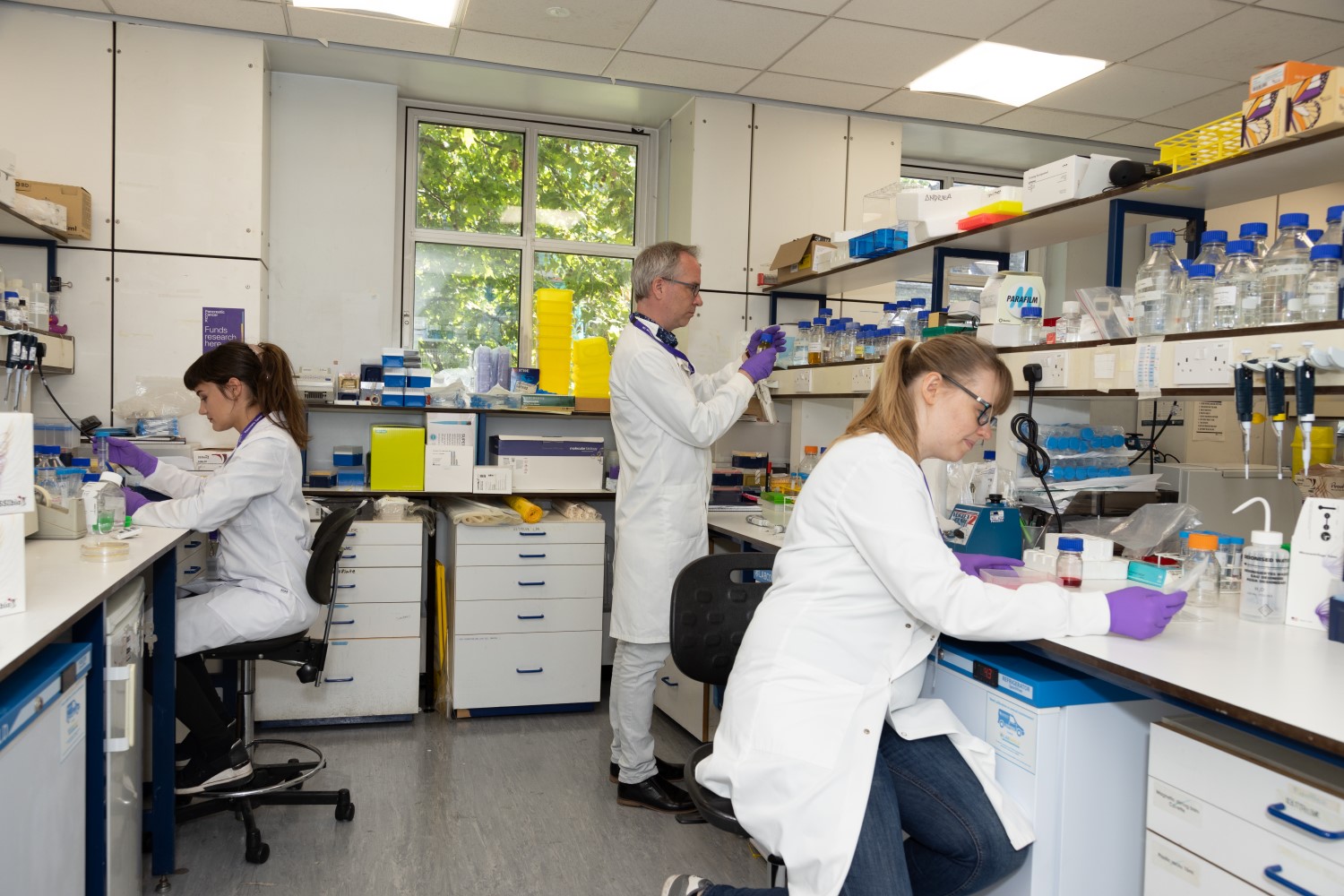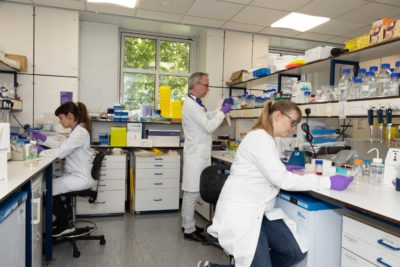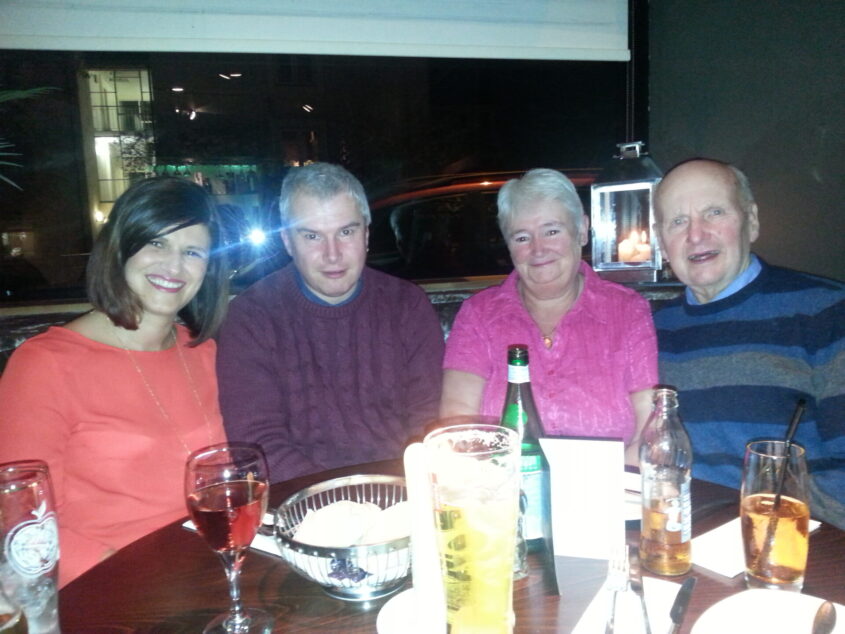



Ground-breaking research into new treatment for pancreatic cancer underway in Scotland
Pioneering research into a new potentially ground-breaking treatment for pancreatic cancer, that has been joint funded by us and Worldwide Cancer Research, has begun. The research, led by University of Glasgow scientist Dr Seth Coffelt, aims to help make desperately needed new immunotherapy treatments a reality for future patients.
Survival rates for pancreatic cancer have barely improved in 50 years, with fewer than 7% of patients in the UK surviving five years after their diagnosis. Currently, the only potential curative treatment of the disease is surgery, but just one in ten patients receive the operation. Tragically, the majority of patients are not diagnosed until after the cancer has spread to other parts of the body, meaning it is no longer possible to save their lives.
Immunotherapy treatments, which boost the immune system’s ability to recognise and destroy cancer cells, have proven a revelation for some types of cancers, such as leukaemia, but have so far been ineffective at treating pancreatic cancer. Dr Coffelt and his team have previously studied how some immune cells, called gamma delta T cells, play a role in driving the progression of pancreatic tumours. It is thought that they do this by controlling the activity of other types of immune cells, to produce the ideal environment for the tumour to grow and spread to other parts of the body.
"Understanding why and how pancreatic cancer is able to hide from the immune system and spread around the body could allow us to find new ways to reduce or even prevent this from happening, giving more people the opportunity to survive for longer and spend more precious time with their loved ones."
Current immunotherapies available in clinics are not working for patients with pancreatic cancer, which is the deadliest common cancer. Using cutting-edge techniques, Dr Coffelt and his team aim to learn more about how the immune system functions as pancreatic cancer spreads, so that they can try to identify new ways to target pancreatic cancer and offer hope to those who have been diagnosed.
Claire McEwan, 46, from East Kilbride lost both her stepdad, Billy, and her ex-husband, Stephen, from pancreatic cancer. Tragically, each died within a year of diagnosis, and now Claire is determined to raise awareness of the need for more research.


Claire’s dad died when she was young, so Billy, a local butcher and fitness fanatic, was the only father she had ever known. He was working and going to the gym regularly despite being in his late seventies. So, when during a phone call to home while on holiday she learnt that Billy had been in hospital with pain and jaundice, it came as a real shock.
Claire said: “When we came home my mum said, on your way past, can you drop in? It was one of those things that I, definitely, definitely wasn’t prepared for. I went in, and Billy said that it was cancer and I genuinely felt like someone had hit me in the chest. I remember just sort of dropping onto the chair backwards and not really taking it in, because Billy was the last person I ever expected it from.”
Doctors discussed surgery to remove the tumour, but first Billy had to have chemotherapy. As fit as he was, at 78 Billy struggled to tolerate the harsh treatment. Sadly, he died on 3rd September 2015.
Claire said: “Billy ended up back in hospital and then was asked to go home… and I didn’t know he was coming home to die. Billy went from sitting on the couch in the living room one minute to being on a morphine drive the next day. I saw him on Friday; I saw him on Saturday; and by Sunday he was on a morphine drive. By Thursday, he was gone.”
“This new research project gives me massive hope. It would be nice to think that that there is a cure on the horizon. I know that they've made so many advances in other types of cancer and I would just love to see the advances made in pancreatic cancer because from what I've seen of it, it's such an aggressive and indiscriminate cancer.”
Research into pancreatic cancer has been underfunded for decades, receiving only 3% of the UK cancer research budget. We have come together with Worldwide Cancer Research to address this by jointly investing more than £240,000 in funding this new project, which will run at the Beatson Institute for Cancer Research and the University of Glasgow for the next three years.

